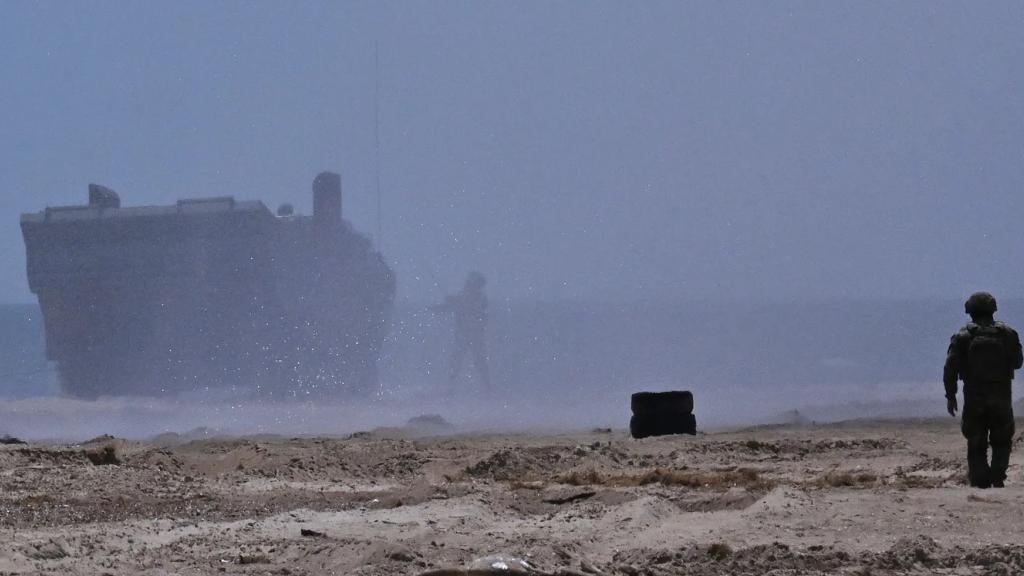Everlasting War: From Putin to Peter and back again

By Boris Kagarlitsky
June 15, 2022 — Links International Journal of Socialist Renewal reposted from Russian Dissent — President Putin, speaking to a group of young people, recently compared himself with Peter the Great and once again made reference to the 18th century “Northern War,” fought between the Russian and Swedish empires. It must be said that the president has no luck with historical facts. In a previous reference to the first Russian emperor, he confused the Northern War with the Seven Years’ War, which would be waged by Peter’s daughter, Empress Elizabeth, half a century hence. This time again there was further embarrassment, as the head of state initially attempted to prove that the lands that the tsar had taken from the Swedes were originally Russian. “It would seem that he was at war with Sweden, he rejected something ... He did not reject anything, he returned!” the president said, correcting himself.
Alas, most of the lands that became part of Russia after the Northern War had nothing to do with either the Moscow kingdom or even the previous Novgorod Republic. Only a narrow strip of soil along the Gulf of Finland, where Petersburg would later be built, can be considered historically Russian. This area had been transferred to the Swedes by the government of Muscovy after the accession to the throne of the founder of the Romanov dynasty, Tsar Mikhail. The lands were uncultivated and of little economic value, but they had potential strategic importance for the defense of Swedish borders in the event of a new conflict with Muscovy.
Peter’s most valuable acquisitions were the lands of the former Livonia, where the German barons and burghers dominated the Estonian and Latvian peasants. Also, according to the Treaty of Nystad in 1721, the city of Vyborg, built by the Swedes as their outpost in Finland, was annexed to the Russian Empire. That this territory is technically a part of Finland was also recognized by the tsarist government. Later, when all of Finland was included in the empire, Vyborg was returned to its that country. It then went to independent Finland, and was then annexed to the USSR after the Finnish-Soviet Winter War of 1940. By the way, it is significant that Stalin, taking away this territory from the Finns, did not refer to any historical facts, but honestly stated that he was simply moving the border away from Leningrad for security reasons.
Naturally, the president’s factual errors immediately became a topic for discussion on the internet. It is astonishing that, in Putin’s 22 years in office, his administration has never acquired a history consultant to prevent the head of state, constantly invoking the great Russian traditions, from making mistakes at the level of a junior high school student.
What the liberal public recalls about Peter is his historical mission as the tsar who would “cut a window to Europe,” a radically different course of action than that undertaken by Putin. “300 years after Peter cut through this window, Vladimir closed it, and now he is also trying to wall it up,” writes Sergei Mitrokhin, a member of the Moscow City Duma from the Yabloko party. This certainly so. But the main point of Putins statement can be found in his mention that Peter fought with the Swedes for 21 years.
The readiness to fight endlessly, even in conditions where there is not the slightest chance of success, is precisely the core of the strategy of the current government; or rather, it is a replacement for a missing strategy. The campaign in Ukraine, which really was conceived as a special operation to be completed in a few days or weeks, has turned into a protracted war, resulting in casualties unprecedented for modern Russia, and also with even more impressive economic damage (not to mention the international isolation, the exodus of specialists, and the demoralization of a large part of the population). Nevertheless, the most important principle of the current government is to never, under any circumstances, admit their failures and mistakes, no matter how obvious or egregious. Such stubbornness will do nothing to correct the situation, and will in fact aggravate it. But this is not a fundamental problem as long as power remains in the same hands. Complete disregard for national interests and common sense is in fact the strength of the ruling group. This approach allows them to remain calm under any circumstances, ignoring not only oppositionists and critics, but also reality. Investment in the repressive apparatus as the only state institution worthy of attention has paid off, at least up to the present moment. And although sooner or later all this will end in disaster, such a prospect does not frighten anyone in power, because they possess another strength: they are basically unable to think about the future.
The endless present, when all the power of the state machine is directed to the only goal - to prevent any change - is the ideal of both Putin himself and of his entourage. True, as we see, the state of affairs has not remained unchanged; it in fact has changed, and for the worse. But this still does not affect the overall approach. In this situation, the endless extension of the present moment means everlasting war. If necessary, they will fight for 21 years, for a hundred years, as long as there are enough people and resources. Which, of course, there are not, not even enough to continue the current policy for several more months. But all of this will become clear in the future.
And, as has already been said, the Kremlin does not think about the future.